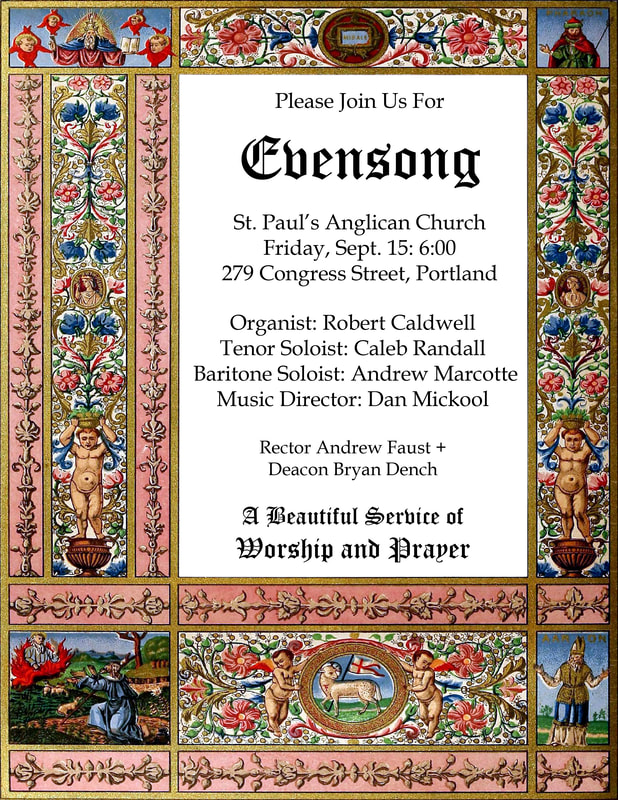

Welcome to St. Paul’s Anglican Church!
We are delighted to be able to communicate with you through the medium of this website. It is just one of the many ways in which parishioners and others can find their way into our community and through this into a deeper life of faith.
Jesus said, "Come unto me all who are weary and heavy-laden, I will give you rest." (Matt 11:28) It is our hope and prayer that through the ministry of all the members of our church family you will come to know Jesus Christ, the Good Shepard, in our midst and that you will truly find rest for your soul.
Very Rev. Andrew S. Faust+
Welcome to St. Paul’s Anglican Church!
We are delighted to be able to communicate with you through the medium of this website. It is just one of the many ways in which parishioners and others can find their way into our community and through this into a deeper life of faith.
Jesus said, "Come unto me all who are weary and heavy-laden, I will give you rest." (Matt 11:28) It is our hope and prayer that through the ministry of all the members of our church family you will come to know Jesus Christ, the Good Shepard, in our midst and that you will truly find rest for your soul.
Very Rev. Andrew S. Faust+